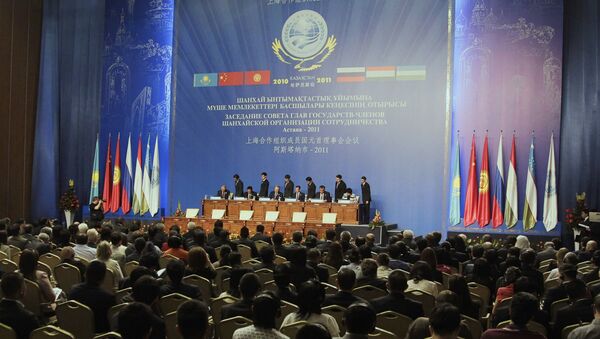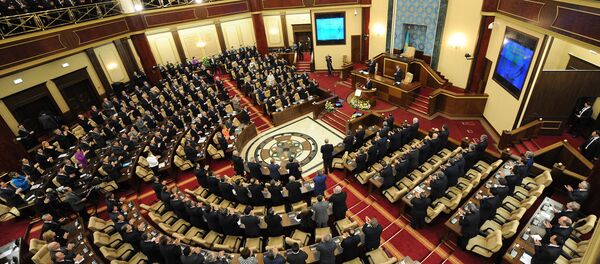"Several thousand citizens from the SCO countries, taking part in combat operations on the side of illegal armed groups in Afghanistan, Syria and Iraq, primarily pose a threat from the standpoint of ‘export’ of terrorist activities on the territories of their countries after coming back home," Director of the Executive Committee of the SCO Regional Anti-Terrorist Structure, Zhang Xinfeng, said at the opening of the conference.
Xinfeng added that attendance by six SCO observer states — Belarus, Mongolia, India, Iran, Pakistan and Afghanistan — allowed embedding a new cooperation practice in countering terrorism on SCO state territories, accounting for three fifths of the Eurasian continent.
The meeting’s agenda implied intelligence sharing between SCO member state and observer state law enforcement agencies, including an exchange of experience and safety measures.
The United Nations Counter Terrorism Committee, CIS Anti-Terrorism Center, OSCE Secretariat, and the United Nations Office on Drugs and Crimes (UNODC) also took part in the conference.
The SCO was founded in 2001 in Shanghai by the leaders of China, Kazakhstan, Kyrgyzstan, Russia, Tajikistan and Uzbekistan.
The main goals of the SCO are the promotion of effective political cooperation to strengthen good-neighbor relations, and maintain regional peace and stability.



